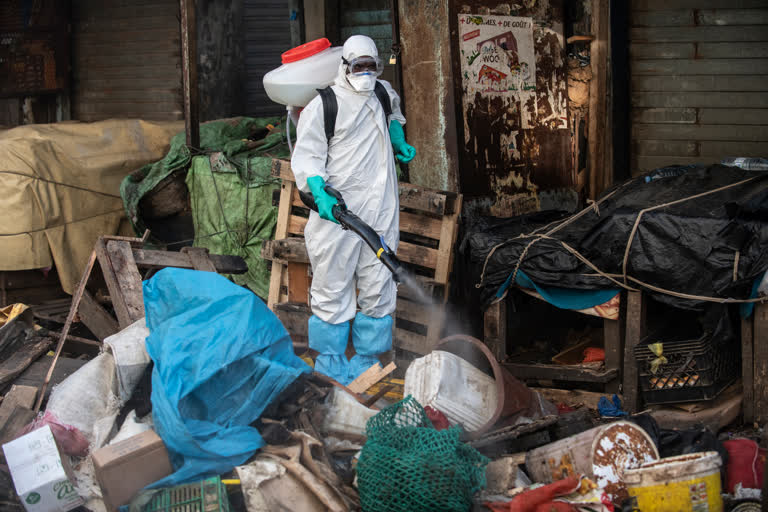Johannesburg:As Africa braces for a surge in coronavirus cases, its countries are dangerously behind in the global race for scarce medical equipment. Ten nations have no ventilators at all.
Outbid by richer countries, and not receiving medical gear from top aid donor the United States, African officials scramble for solutions as virus cases climb past 25,000. Even in the best scenario, the United Nations says 74 million test kits and 30,000 ventilators will be needed by the continent's 1.3 billion people this year. Very few are in hand.
"We are competing with the developed world,” said John Nkengasong, director of the Africa Centers for Disease Control and Prevention. “The very future of the continent will depend on how this matter is handled.”
Read Also:Amid Covid crisis, China steps up bullying in South and East China Sea
Politicians instinctively try to protect their people and we know that sometimes the worst in human behaviour comes out, said Simon Missiri, Africa director with the International Federation of Red Cross and Red Crescent Societies, urging an equitable approach to help developing nations.
The crisis has jolted African nations into creating a pooled purchasing platform under the African Union to improve negotiating power. Within days of its formation, the AU landed more than 1,00,000 test kits from a German source. The World Health Organization is pitching in, approaching manufacturers for supplies.
Africa also benefits from the UN's largest emergency humanitarian operation in decades, with medical cargo including hundreds of ventilators arriving in Ethiopia this month and sent to all countries across the continent. Another shipment from the Jack Ma Foundation is on the way.
But Africa isn't holding out a begging bowl, Nkengasong said. Instead, it's asking for a fair crack at markets — and approaching China for not donations. Quotas that Africa as a continent can purchase.
Read Also:A stroke of luck: Global cruise's journey ends in Genoa during pandemic
Such efforts are a response to a global thicket of protectionism: More than 70 countries have restricted exports of medical items, putting Africa in a perilous position, the UN says. New travel bans have closed borders and airports, badly wrenching supply chains.
“It’s like people hoarding toilet paper, which I still don’t understand,” Amer Daoudi, the UN World Food Program’s senior director of operations, told. “Countries in Europe and North America are paying attention to their own internal needs, but we think that will ease off very soon.”
While nations that are traditionally the world’s top humanitarian donors are distracted, the WFP, the UN’s logistics leader, heaved the emergency operation into place with unprecedented reach. Normally in about 80 countries, this effort involves almost 120, Daoudi said.
The WFP seeks USD 350 million to keep the operation running for Africa and elsewhere, delivering aid for the pandemic and other crises like HIV and cholera that need drugs and vaccines to keep flowing. Africa imports as much as 94% of its pharmaceuticals, the UN says.
“I’ve never been involved in anything like this before. I don’t think any of us have,” said Stephen Cahill, WFP’s director of logistics. “We’re seeing countries taking measures we think aren’t always rational. When you start closing borders, we start to get very nervous.”
